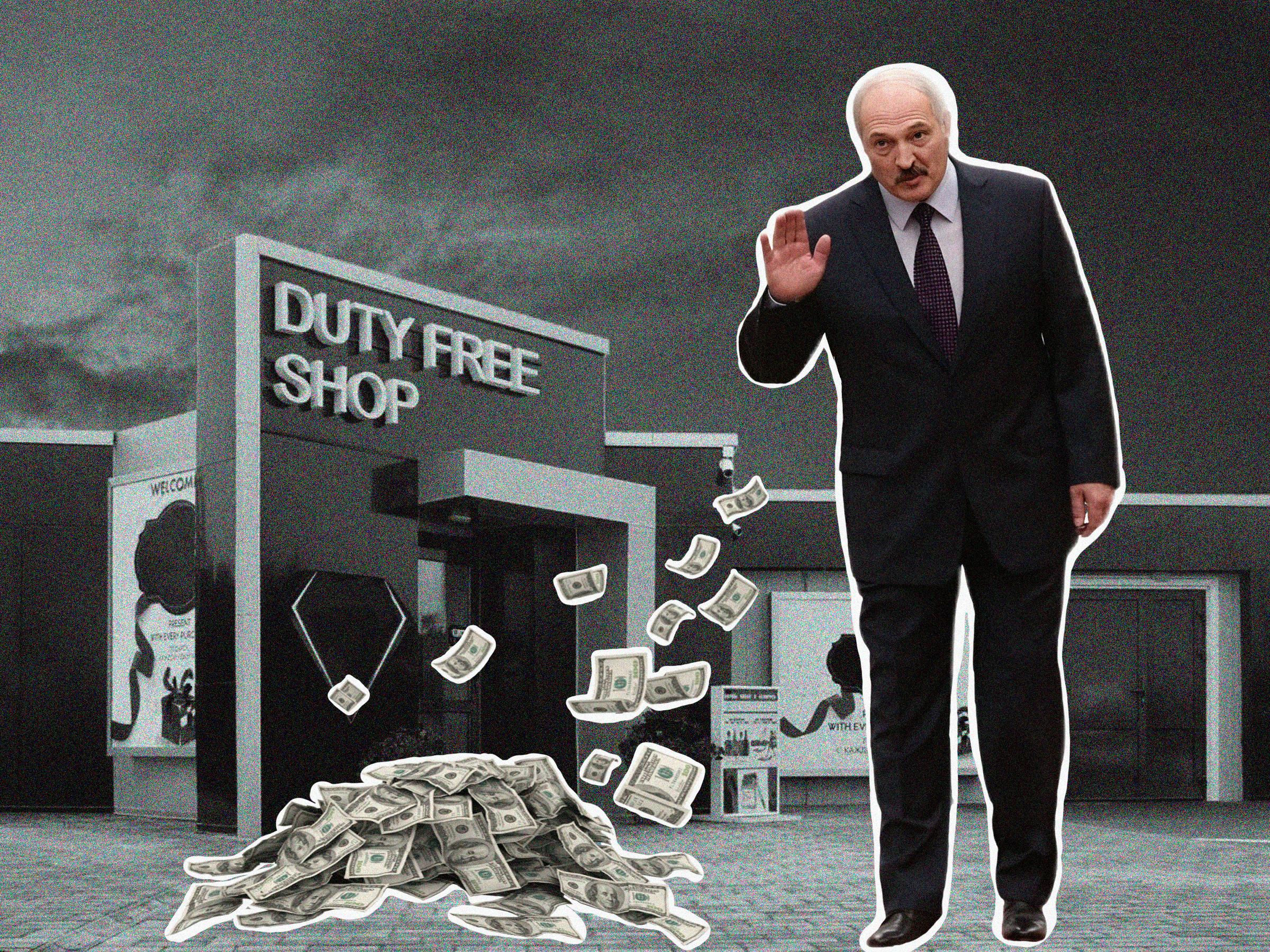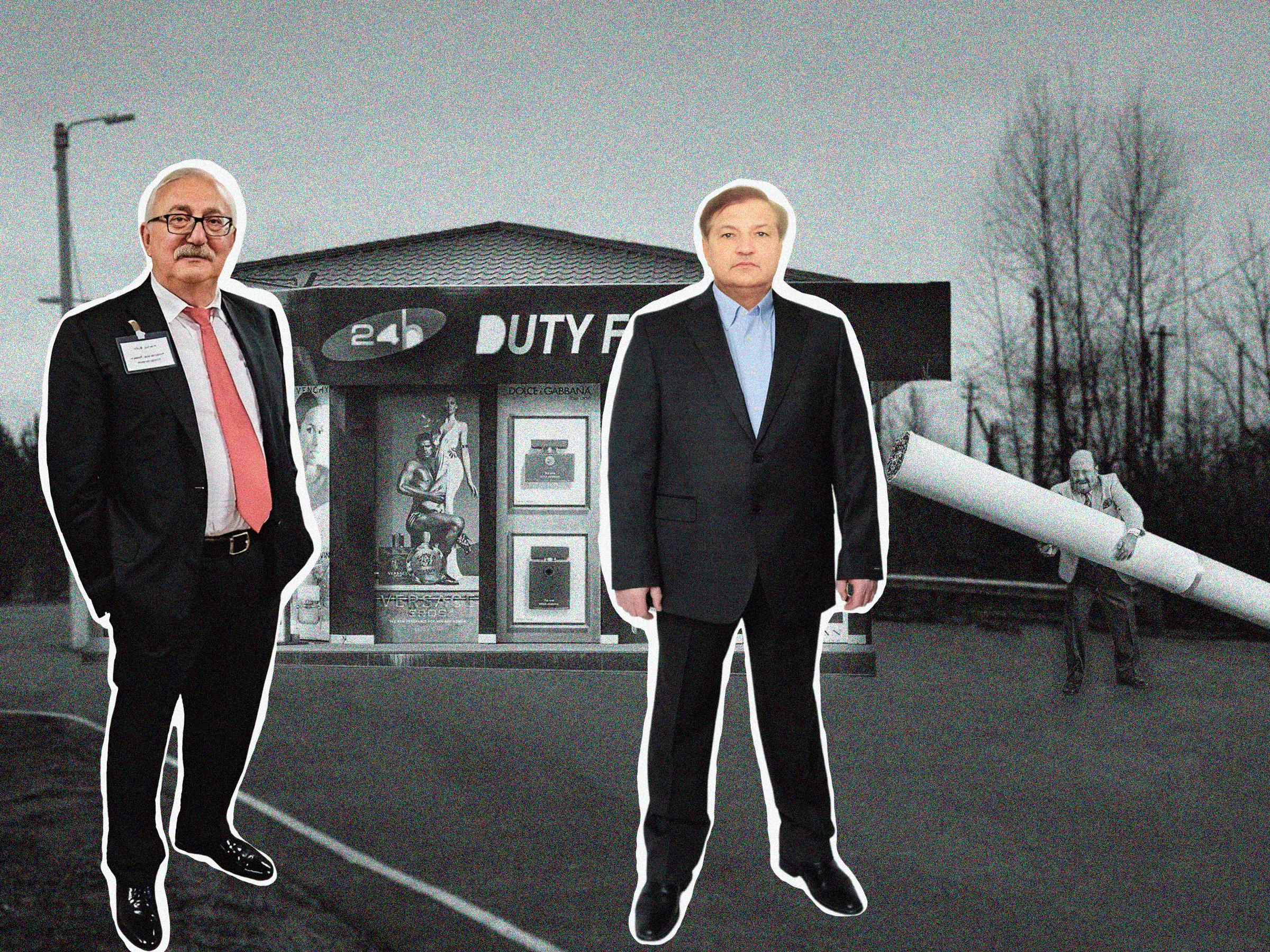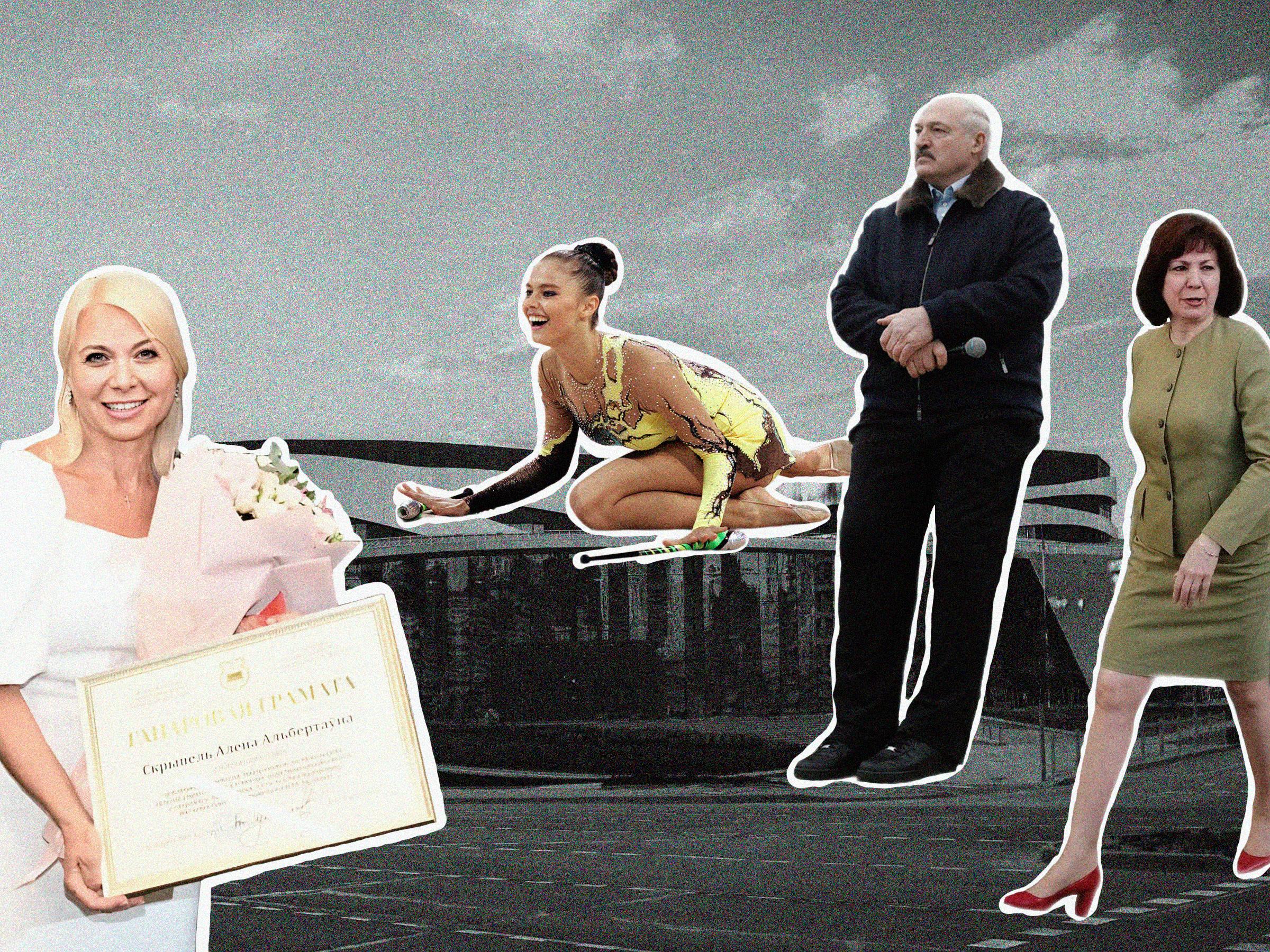This investigation was conducted with the support of the activist group CyberPartisans.
On January 5, Lukashenko signed a law that abolished a monopoly on selling alcohol in duty-free shops. When it comes into effect on July 11, new players may enter this market. However, the law does not specify who and under what conditions.
Since 2008, private companies, including one owned by businesswoman Helen Skripel, have been allowed to enter the duty-free market alongside a state-owned company. In July 2022, she was joined by an Emirati offshore company and the Tabak-Invest company. The owners of Tabak-Invest, Pavel Topouzidis and Victor Petrovich, were targeted by US sanctions in 2023 as key "moneybags" for Lukashenko and his regime.
President makes the rules
Until 2007, duty-free shops in Belarus were not only located at the border crossings and airports. Reminiscent of the Soviet Beryozka chain of shops, they operated inside Minsk, catering mainly to foreign diplomats. In 2005, the State Control Committee began reporting irregularities in their work. For example, 60% of duty-free alcohol illegally ended up on the domestic market in Belarus, where it was being resold.
More than 50 duty-free shops were closed in 2007. In 2008, Lukashenko established a monopoly on duty-free sales. The exclusive rights were granted to Dipmarket, controlled by the Directorate of Presidential Affairs, Somlen and Bela Trading Duty Free. Four years later, the same decree added a private company, Helena Valery, to the list of special operators. One of the main conditions for opening a shop was to contribute 10% of the operator's turnover to the public purse on a quarterly basis.
To increase the inflow of foreign currency into the country, Belarusian alcohol and cigarettes were exempted from excise duties in duty-free shops in 2015. That same year, Lukashenko issued a decree granting the companies Dipmarket, Belamarket Helena Valery, MarketLiga and Belamarket Duty Free exclusive rights to sell duty-free alcohol.
Who owns these companies?
Four companies have the right to sell alcohol duty-free until July 2024 when the new law comes into force.
Dipmarket is part of the government institution Main Department for Serving the Diplomatic Corps and Official Delegations "Dipservice". Dipservice, in turn, is under the authority of the Belarusian Directorate of Presidential Affairs. [*] [*]
MarketLiga company was until recently owned by the government. It was founded in 2013 by Beltamozhservis and SportLiga. In 2017, Beltamozhservis transferred its shares to the National Olympic Committee and the Presidential Sports Club, which is run by Lukashenko's middle son, Dmitry Lukashenko. In 2022, ownership changed again: the shares were divided equally between the Emirati offshore company Alex General Trading FZE and Tabak-Invest, owned by businessmen Pavel Topouzidis and Victor Petrovich. [*] [*]
The tobacco factory owned by their company was featured in a 2015 journalism investigation into the smuggling of Belarusian cigarettes into Europe through duty-free shops.
Tabak-Invest owners Topouzidis and Petrovich were also implicated in these BIC investigations:
With “Korona” at the head. How Pavel Topouzidis joined “fake transit” and built an empire
One of the original co-founders of MarketLiga, Beltamozhservis, is 100% controlled by the State Customs Committee of Belarus. [*] [*]
Beltamozhservis was given exclusive supply terms with the approval of Lukashenko. This is evidenced by a letter addressed to him and now possessed by BIC. In 2023, Beltamozhservis came under US sanctions for "large-scale smuggling schemes into Russia for the benefit of oligarchs and the Lukashenko regime".
Another participant is Belamarket Duty Free. It was founded in 2013 by the Atsurok (Belarus) and Karl-Heinz Drewes (Germany) companies. As of 2014, 50.01% of the company was owned by Lithuanian UAB Mello Trading, which reported a net loss of €300,000 in 2022. The remaining 49.99% went to Dipmarket, which is controlled by the Directorate of Presidential Affairs through Dipservice. [*] [*]
Combining sports and spirits
Helen Skripel has been the majority shareholder in the companies Helena Valery and Somlen, which had the right to sell duty-free alcohol until 2015, and Belamarket Helena Valery, which replaced them. She has been the head of the Belarus Gymnastics Association since 2014. [*] [*] [*] [*] [*] [*]
Skripel began her career at Belarusbank under Tamara Vinnikava, an unofficial economic advisor to Lukashenko who later became the head of the National Bank. In 1997, Vinnikava was detained by the KGB (The State Security Committee) on suspicion of committing official crimes and causing grand damage to the state.
In the early 1990s, Skripel was the head of the currency department at Belarusbank. Due to a conflict with her superiors, she left that position.
In 1992, Skripel registered her first company, Helena Valery. In 1996, she registered Somlen. In 2013, she co-founded Belamarket Helena Valery. This company is now run by her business partner Ryta Brytsikava, who is also Skripel's first deputy at the Gymnastics Association. [*]
Skripel says she met Lukashenko in 1996 at a "Christmas Meetings" annual award ceremony.
"At the last moment, it was decided that the Head of State, together with the (Orthodox Church) Metropolitan, would attend the ceremony. We talked to Aleksandr Lukashenko, and he offered to help with the event. Since then, 'Christmas Meetings' have been held every year on Christmas Day, 7 January", Skripel said.
In 2018, the Palace of Rhythmic Gymnastics was built near the Drazdy estate on Peramozhtsau Avenue in Minsk, thanks to Skripel’s initiative. Lukashenko, Speaker of the Council Natalya Kochanova and gymnast Alina Kabaeva attended the opening ceremony. The Russian Anti-Corruption Foundation refers to Kabaeva as Vladimir Putin's common-law wife. Skripel stated that the Rhythmic Gymnastics Association, of which she is the head, had been tasked with constructing a multifunctional building adjacent to the new Palace of Rhythmic Gymnastics.
According to Realt.by, Skripel's company Helena Valery has leased a 2.4-hectare site. The creative workshop of Barys Shkolnikau, stepfather of biathlete Darya Domracheva, developed the project. Lukashenko’s eldest son Viktor attended the opening in May 2023.
An elegant way to enter the market
When the new law takes effect in July, will independent companies not affiliated with government authorities be able to enter the duty-free market? Businessman Aliaksandr Knyrovich says "imports are still licensed and subject to state quotas, with no indulgences expected":
"I wouldn't talk about any significant market redistribution. Duty-free stores are a tidbit and beyond competition ... It is clear that external players are not admitted ... It is pointless to search for specific competition, markets, or conditions that have transitioned from socialism to capitalism in this document. I'd rather wait and see if someone new tries to enter this shrunken market. That's such an elegant way to do it. Whereas in the past the names of specific companies were clearly spelled out, today they have so elegantly removed this requirement, perhaps for one with good connections. We are going to find out who it is later on, when they start opening new stores."
BIC has requested an explanation from the Ministry of Antimonopoly Regulation and Trade regarding exclusive rights granted to private firms for selling alcohol in Belarusian duty-free stores. We also asked the companies MarketLiga and Belamarket Helena Valery to comment on the situation. We have not received any responses.






